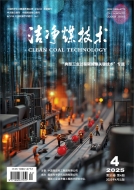Application and prospect of ammonia fuel in combustion facilities
 2024 No. 05
2024 No. 05
 1055
1055 421
421

Citation format:

Authors:
- ZHANG Ruifang
- ZHANG Yang
- ZHANG Hai

Unit:
- Key Laboratory of Thermal Science and Power Engineering of Ministry of Education,Department of Energy and Power Engineering,Tsinghua University

Abstract:
In the strategical context of carbon neutrality, ammonia (NH3), as a carbon-free fuel, has attracted great attention by the academic communities and industries. In recent year, extensive studies are conducted on the associated combustion fundamentals. In the sametime, several application researches and engineering demonstrations to burn NH3 in various industrial devices were carried out. Researchprogress of NH3 fuel utilization in coal-fired boiler and other combustion facilities were reviewed, and measures taken to resolve the two issues for NH3 combustion, i.e., the weak stability and high NOx emission were focused on. In addition, some prospects in future researchwere given. Strategical analyses show that for carbon neutrality, NH3 has certain economic advantages over hydrocarbon fuels such as natural gas. NH3 can be mixed with existing fuel or active fuels such as H2 and methane to increase combustion intensity, and can even besolely burned through preheating, catalytic decomposition, and oxygen enrichment measures. The most common and effective method to reduce NOx in industrial devices is air-staged combustion. NH3 combustion in IC engines is prone to stable, but NOx emissions are relativelyhigh. Therefore, NOx emission reduction is a key focus of future work. The application research of NH3 fuel in gas turbines mainly focus onnumerical simulation and a few small-scale gas turbine tests. Stable and low NOx emission have been achieved, but research on large-scale gas turbines is still lacked. The application research on NH3 fuel utilization in boilers focus on the co-combustion of NH3 with pulverized coals. China is active in NH3 -coal combustion research, has recently conducted industrial tests on a 300 MW coal-fired boilerwith a maximum NH3 to coal calorific ratio of 35%. More research with larger NH3 co-firing ratio are needed. Circulating fluidized bed(CFB) boilers are ideal NH3 combustion device over the pulverized coal fired boiler, and attention should be paid in the future.

Keywords:
- ammonia fuel
- combustion
- industrial application
- carbon neutralization

Citation format:

Chart:

Articles:

-
Executive director
China Coal Science and Industry Group Co., Ltd
-
Sponsored by
Coal Science Research Institute Co., Ltd
Coal Industry Clean Coal Engineering
Technology Research Center -
Editor in Chief
XIE Qiang
-
Vice Editor-in-Chief
YU Chang
SHI Yixiang
ZHAO Yongchun
DUAN Linbo
CAO Jingpei
ZENG Jie -
Publication Frequencies
Monthly
-
ISSN
1006-6772
-
CN
11-3676/TD
Covered by
- CSTPCD
- RCCSE(A+)
- AJ
- EBSCO host
- Ulrichsweb
- JST
- Scopus
Contact us
New Media
-
 Meichuanmei
Meichuanmei -
 Clean Coal Technology
Clean Coal Technology -
 Online Journals
Online Journals









 Submission system
Submission system Copyright agreement
Copyright agreement Instructions for authors
Instructions for authors